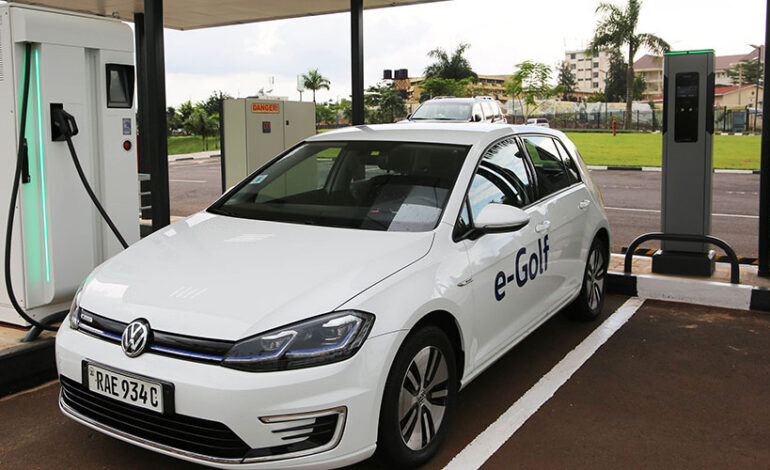
Renson Mwakandana
Rwanda, known as the “country of a thousand hills,” would not seem like the ideal location to introduce electric vehicles. Any vehicle would have trouble navigating the rough, rural terrain, but heavier battery-equipped vehicles in particular would struggle. But Paul Kagame, the president of landlocked Rwanda, wants to change the nation’s economy.
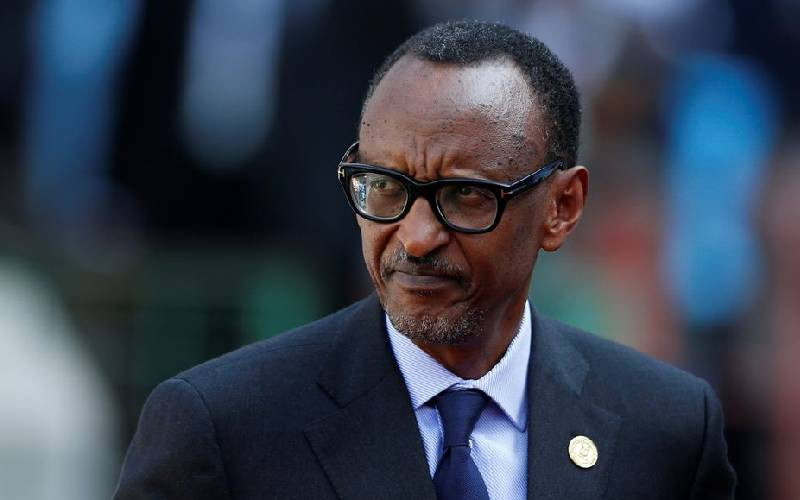
Reducing greenhouse gas emissions and the country’s reliance on imported fossil fuels, which make up 40% of its foreign exchange expenditures, are important components of the strategy.
In order to promote electric vehicles, the government has introduced a number of incentives. Electric vehicles, their replacement parts, batteries, and the hardware for charging stations are free from import, excise, and VAT taxes.
Electricity that is significantly subsidized can be used to charge electric automobiles. Additionally, the government provides land for charging bays at no charge. The incentives were first put forward in early 2019, however the Covid epidemic delayed their implementation until April 2021.
One of the first companies to benefit from the government plan was Volkswagen in Germany. In 2019, it introduced the e-Golf model to Rwanda. In Kigali, the trial experiment began with four of the vehicles and two charging stations.
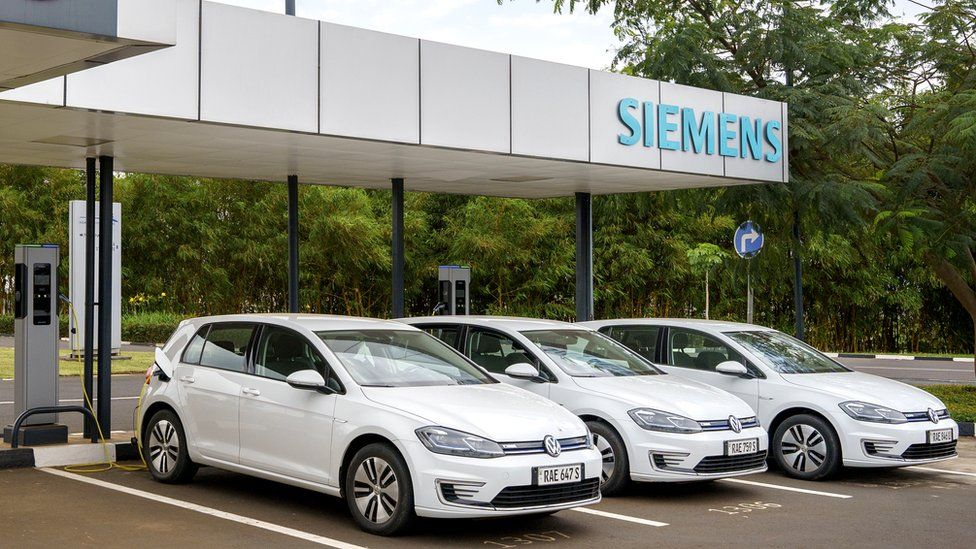
The program was originally going to be expanded to 50 cars and 15 charging stations as part of VW’s Move cab-hailing app.
Three years later, just 20 of the cars are still in operation, and they are no longer part of the ride-hailing network. Instead, they provide transportation to and from the Kigali Convention Center, the international airport, and a number of upscale hotels.
According to Allan Kweli, chief of operations at Volkswagen Mobility Solutions Rwanda, “The unevenness in road infrastructure and the height of speed-bumps turned out to be too challenging for the e-Golf, which has a relatively low ground clearance.”
Damage to the car’s bottom, which houses the batteries, was of particular concern. VW still has hope for Rwanda despite that misstep. It intends to import the higher ground clearance ID.4 electric vehicle.
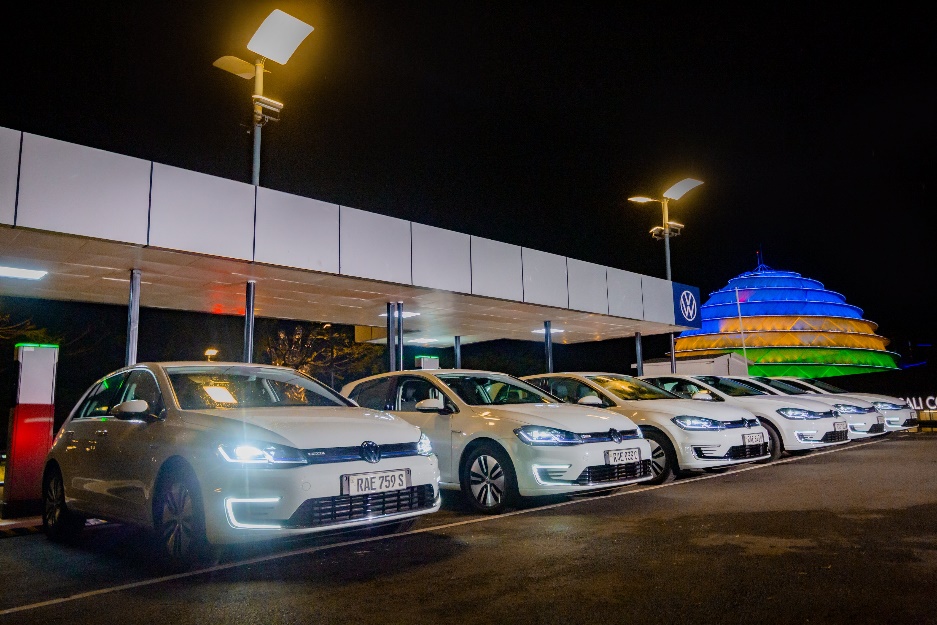
Mr. Kweli believes that “the beauty of Rwanda is that the government has created a test scenario whereby you can prove your work in an African setup.”
The absence of any charging stations outside of Kigali is one apparent issue that the automakers must deal with. It might be challenging to defend significant expenditures in a national charging infrastructure in a developing nation like Rwanda.
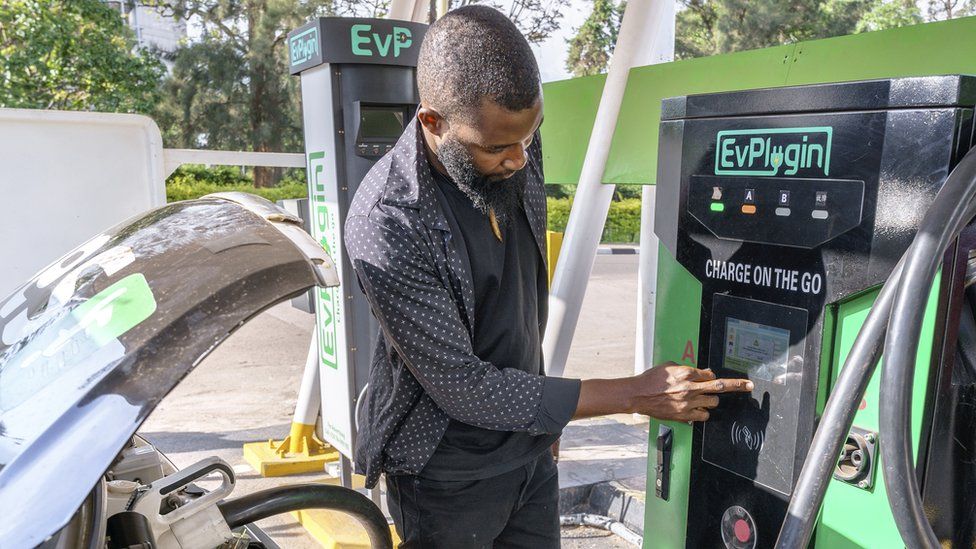
Nevertheless, during the following two years, 200 public chargers will be built throughout Rwanda via the Ev-Plugin charging network in collaboration with the government and energy providers. 35 of those facilities will be appropriate for vehicles, and the remaining ones will accommodate electric motorcycles.




